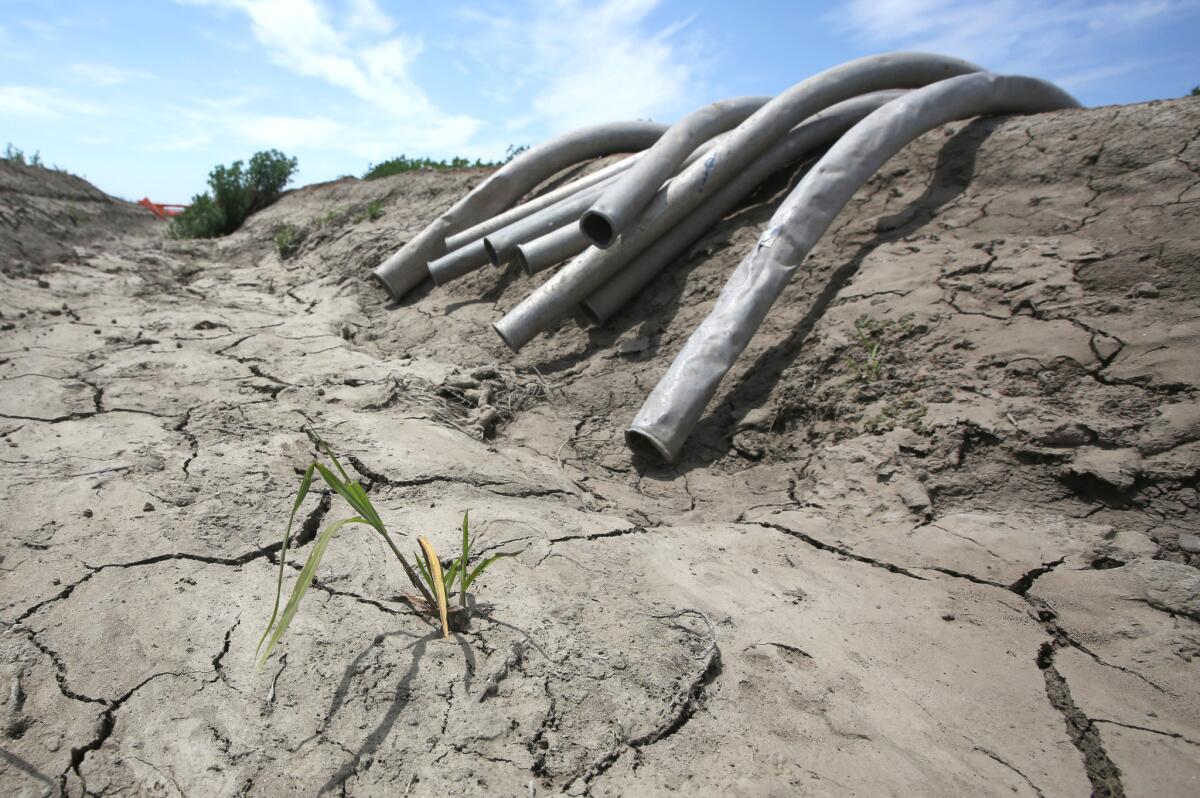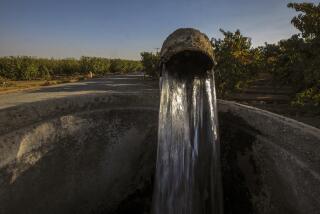As California drought worsens, experts urge water reforms

Irrigation pipes lie along a dried irrigation canal on a field near Stockton.
- Share via
As mandatory water restrictions took effect Monday across California, a panel of experts called upon the drought-plagued state to upgrade its water infrastructure and reform its antiquated water rights system.
“The reservoirs we built in California over the 20th century were designed for a climate with extensive snowpack, and frequent wet periods,” said Juliet Christian-Smith, a climate scientist with the California office of the Union of Concerned Scientists.
“We know that this drought is a bellwether of future conditions,” Christian-Smith said. “This year’s record-low snowpack is projected to be close to normal by the end of the century.”
Christian-Smith was one of a handful of experts who spoke to reporters during a telephone news conference organized by the science group.
With droughts in California and other western states likely to grow more frequent because of global warming, planners needed to explore new methods of water conservation, they said.
Among the solutions was devising new ways to capture rainwater runoff so that it could be stored in soils, floodplains and groundwater basins.
“It’s not about building bigger and higher dams,” said Joseph McIntyre, president of the not-for-profit food sustainability organization Ag Innovations.
Instead, McIntyre said the state should focus on “capturing and storing water everywhere in the system -- on small ponds, on farms, in urban rainwater harvesting projects and in small-scale reservoirs. The future is small and distributed.”
Michael Hanemann, a professor of environmental and resource economics at UC Berkeley, said also that the state’s system of water rights was in serious need of updating.
However, he said the Legislature has showed “no appetite” to make reforms.
Among the most senior water rights holders in California are those who hold riparian rights -- that is, the right to siphon water from a river or stream that runs through or along a property owner’s land. Those rights date back to the founding of the state in 1850.
“Riparian rights are totally dysfunctional in an arid area,” Hanemann said. “All of the other western states, as they developed, abolished riparian rights.”
California’s ability to cope with the current drought, as well as others, had broad national implications, said Kirsten James of Ceres, a nonprofit group that promotes sustainable business practices.
“California leads the U.S. in agriculture, manufacturing and tourism and is a major international exporter, “ James said. “The drought and the ongoing mismanagement of our state’s water resources threatens the economic vitality of California and beyond.”
Follow @montemorin for drought and science news
More to Read
Sign up for Essential California
The most important California stories and recommendations in your inbox every morning.
You may occasionally receive promotional content from the Los Angeles Times.











